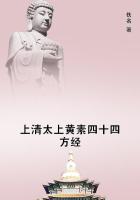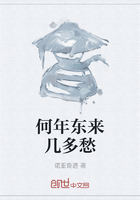It was his great fortune to have been mostly misunderstood, and to have reached the dense intelligence of his fellow-men after a whole lifetime of perfectly ****** and lucid appeal, and his countenance expressed the patience and forbearance of a wise man content to bide his time. It would be hard to persuade people now that Emerson once represented to the popular mind all that was most hopelessly impossible, and that in a certain sort he was a national joke, the type of the incomprehensible, the byword of the poor paragrapher. He had perhaps disabused the community somewhat by presenting himself here and there as a lecturer, and talking face to face with men in terms which they could not refuse to find as clear as they were wise; he was more and more read, by certain persons, here and there; but we are still so far behind him in the reach of his far-thinking that it need not be matter of wonder that twenty years before his death he was the most misunderstood man in America.
Yet in that twilight where he dwelt he loomed large upon the imagination;the minds that could not conceive him were still aware of his greatness.
I myself had not read much of him, but I knew the essays he was printing in the Atlantic, and I knew certain of his poems, though by no means many; yet I had this sense of him, that he was somehow, beyond and above my ken, a presence of force and beauty and wisdom, uncompanioned in our literature. He had lately stooped from his ethereal heights to take part in the battle of humanity, and I suppose that if the truth were told he was more to my young fervor because he had said that John Brown had made the gallows glorious like the cross, than because he had uttered all those truer and wiser things which will still a hundred years hence be leading the thought of the world.
I do not know in just what sort he made me welcome, but I am aware of sitting with him in his study or library, and of his presently speaking of Hawthorne, whom I probably celebrated as I best could, and whom he praised for his personal excellence, and for his fine qualities as a neighbor. "But his last book," he added, reflectively, "is a mere mush,"and I perceived that this great man was no better equipped to judge an artistic fiction than the groundlings who were then crying out upon the indefinite close of the Marble Faun. Apparently he had read it, as they had, for the story, but it seems to me now, if it did not seem to me then, that as far as the problem of evil was involved, the book must leave it where it found it. That is forever insoluble, and it was rather with that than with his more or less shadowy people that the romancer was concerned. Emerson had, in fact, a defective sense as to specific pieces of literature; he praised extravagantly, and in the wrong place, especially among the new things, and he failed to see the worth of much that was fine and precious beside the line of his fancy.
He began to ask me about the West, and about some unknown man in Michigan; who had been sending him poems, and whom he seemed to think very promising, though he has not apparently kept his word to do great things. I did not find what Emerson had to say of my section very accurate or important, though it was kindly enough, and just enough as to what the West ought to do in literature. He thought it a pity that a literary periodical which had lately been started in Cincinnati should be appealing to the East for contributions, instead of relying upon the writers nearer home; and he listened with what patience he could to my modest opinion that we had not the writers nearer home. I never was of those Westerners who believed that the West was kept out of literature by the jealousy of the East, and I tried to explain why we had not the men to write that magazine full in Ohio. He alleged the man in Michigan as one who alone could do much to fill it worthily, and again I had to say that I had never heard of him.
I felt rather guilty in my ignorance, and I had a notion that it did not commend me, but happily at this moment Mr. Emerson was called to dinner, and he asked me to come with him. After dinner we walked about in his "pleached garden" a little, and then we came again into his library, where I meant to linger only till I could fitly get away. He questioned me about what I had seen of Concord, and whom besides Hawthorne I had met, and when I told him only Thoreau, he asked me if I knew the poems of Mr. William Ellery Channing. I have known them since, and felt their quality, which I have gladly owned a genuine and original poetry; but Ianswered then truly that I knew them only from Poe's criticisms: cruel and spiteful things which I should be ashamed of enjoying as I once did.
"Whose criticisms?" asked Emerson.
"Poe's," I said again.














